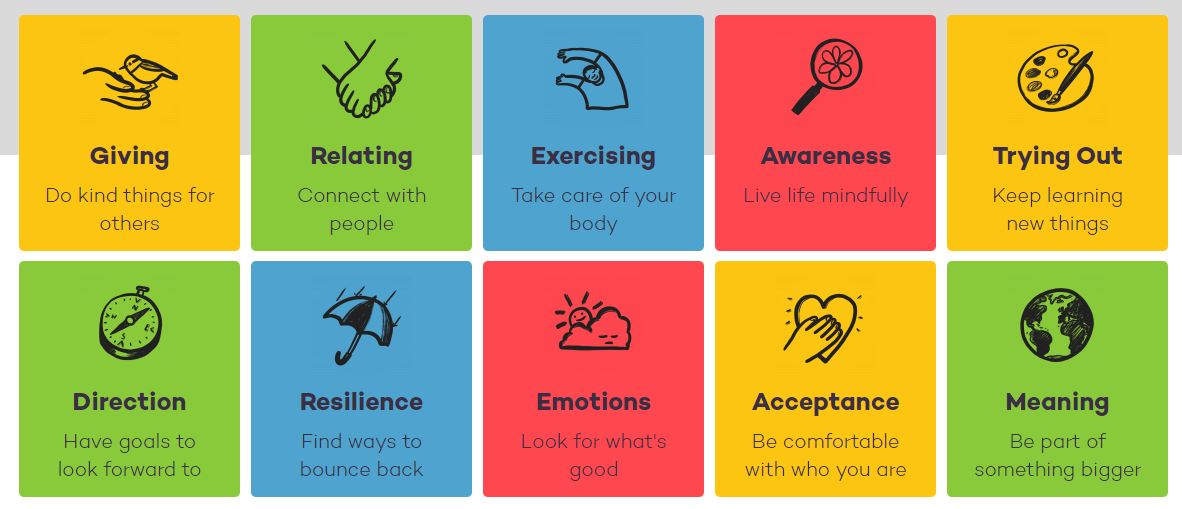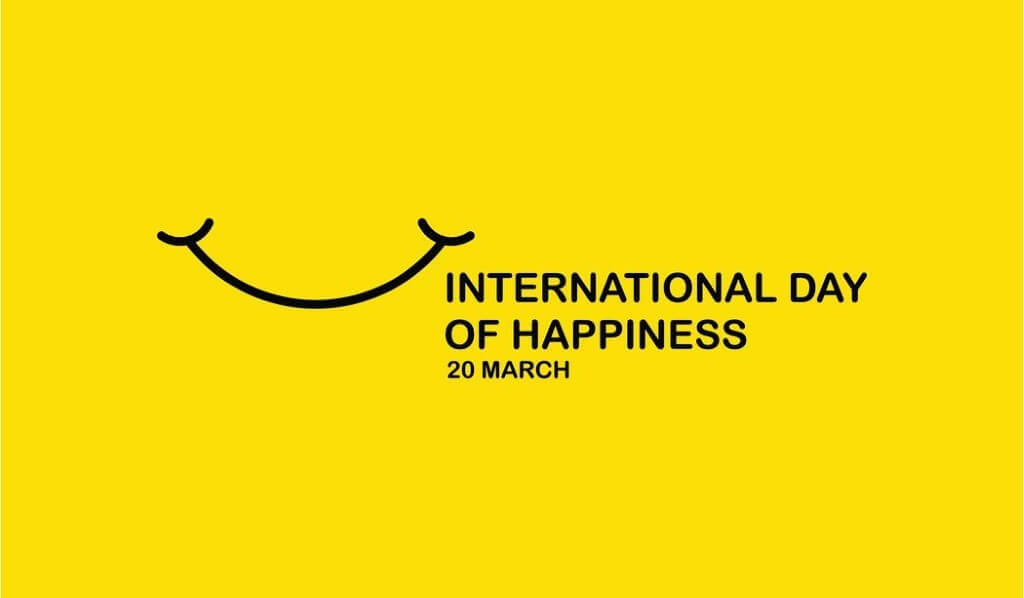Today is International Day of Happiness. But how has our happiness changed over two years of the pandemic asks ALIX NORMAN. And what can we do to be happier?
Happiness takes work. Unlike moments of spontaneous joy, happiness is not something we are, it’s something we do. It’s even there in the US Constitution: it’s not the right to be happy, but the right to pursue happiness. In other words, don’t just sit back and wait for happiness to happen; get trying!
There’s no better day to start than March 20. Today is the United Nations International Day of Happiness, an annual celebration whose patron is the Dalai Lama. Launched in 2013, the Day is coordinated by Action for Happiness, a non-profit whose work spans 160 countries around the world. Over the course of the pandemic, the organisation has had their work cut out for them: illness, isolation, uncertainty, financial worries, job loss, the death of loved ones… It’s a wonder any of us are still standing, let alone smiling!

“I think many of us have seen our happiness levels fluctuate over the last two years,” says 72-year-old Paphos resident Jo. “And we’ve had to work that bit harder at making ourselves happy – perhaps finding new ways to do the things that bring us joy.”
Jo admits that her previous happinesses – “coffee mornings, teaching kids to knit, long conversations with strangers” – have been hampered by the need to socially distance. “But instead I’ve found ways to make myself happy that don’t involve direct contact: calling single friends to check they’re okay, taking up gardening, and knitting for various local charities.”

older people have maintained their happiness better than youngsters during the pandemic
Jo suggests that the pandemic has probably been easier for older people than most expected. “Once you reach your 60s, you achieve a sort of general contentment. Urgency disappears; you begin to live less for an uncertain future, and more for the present moment, and so you begin to concentrate on smaller, everyday happinesses.”
The idea that those in their later years have seen their happiness less affected by the pandemic is not new. Generally, happiness is a U-shaped curve: highest at 18 and over 60, and lowest in middle-age. (According to research from Dartmouth, peak unhappiness occurs between the ages of 47 and 48.)
But Covid has changed the data: “Younger people are doing far worse emotionally than older people,” says Dr Carstensen, a psychologist at Stanford University, adding that despite both groups reporting similar levels of stress, older people’s “moods remained elevated, on average, compared with those in younger generations.”
A study from the University of British Columbia confirms these findings, suggesting that older age is associated with less concern about the threat of Covid-19, better emotional wellbeing, and more daily positive events. Which begs the question, how has our youngsters’ happiness fared over the last two years?
“I’m definitely less happy than I was before the pandemic,” says 22-year-old design student Rena. “The relaxation in measures is good, but the last two years have been horrible. I spent my 21st birthday alone; my biggest birthday of my life and I couldn’t even see my family because they were in quarantine! How was I meant to be happy?”
19-year-old Stelios is also mourning the time he lost to the pandemic. “I’m young – these were meant to be the best years. I’m not going to be happy sitting round the house reading a book or doing a puzzle. I want to be out with my friends, meeting for a drink or going to a club!”
With fewer experiences and hobbies, and less resilience to times of crisis, Covid has been hard for the under-30s. But where then, does that leave the middle-aged who, according to the data, are in the unhappiest stage of life with or without a global pandemic?
Women from 35 to 55 fared the worst, it seems, especially in households where both partners were forced to work remotely. A recent study published in PNAS showed that, during the pandemic, mothers actually spent more time on household chores and caretaking duties than previously, and consequently experienced a tangible decrease in happiness.
“Happiness? What’s that?” asks 42-year-old mother-of-two, Melissa. “Whenever my husband worked from home, I had triple the workload. In the worst of the lockdowns, I didn’t even have time to call a friend or take a hot bath – small things that add a little happiness to my day – because I was too busy coping with family and work. Yes, things are getting better now. But I’m still exhausted, and I suspect it will take a while before I can be happy again.”
But then it isn’t, according to Action For Happiness, about just ‘being’ happy. Happiness needs work. It’s a lesson 43-year-old George, a father of three, admits he had to learn over the past two years.
“Those first few months, spending time with my family, were amongst the happiest of my life,” he reveals. “But as the pandemic dragged on, that initial rush of happiness was drained by home and work responsibilities and I could feel myself sinking into the blues. And so I had to learn that happiness wasn’t something I could just take for granted anymore. It was a choice: I had to actively work at it.”
While these few people are hardly representative of the entire pandemic experience, it seems that those who have maintained happiness have really worked at it. Like Jo, who actively sought out new challenges and reinforced connections, George found that pursuing his interests – “playing music, taking a walk, chatting to a friend” – was vital to wellbeing.
And this is what the ‘10 Keys To Happiness’ entails. To be happy, they suggest, we need to work at: giving, relating, exercising, awareness, trying out new things, setting new goals, developing resilience, focusing on positive emotions, accepting our circumstances, and finding meaning in life. The pandemic has not, suggests Action For Happiness, been great for global happiness. But it’s those who have put in the work who have managed to maintain their happy.
For more information on the International Day of Happiness, visit https://www.dayofhappiness.net/ or https://actionforhappiness.org/10-keys







Click here to change your cookie preferences